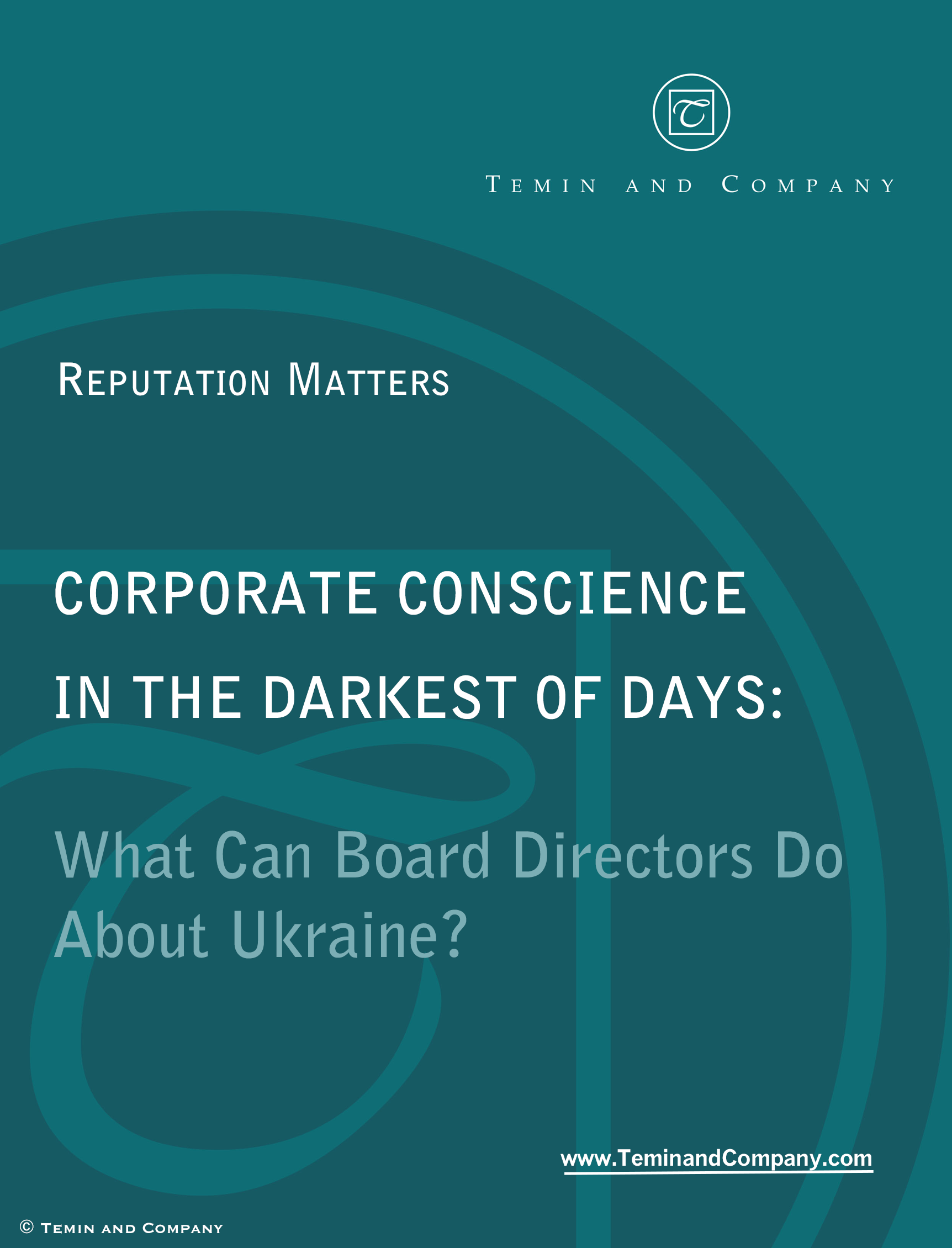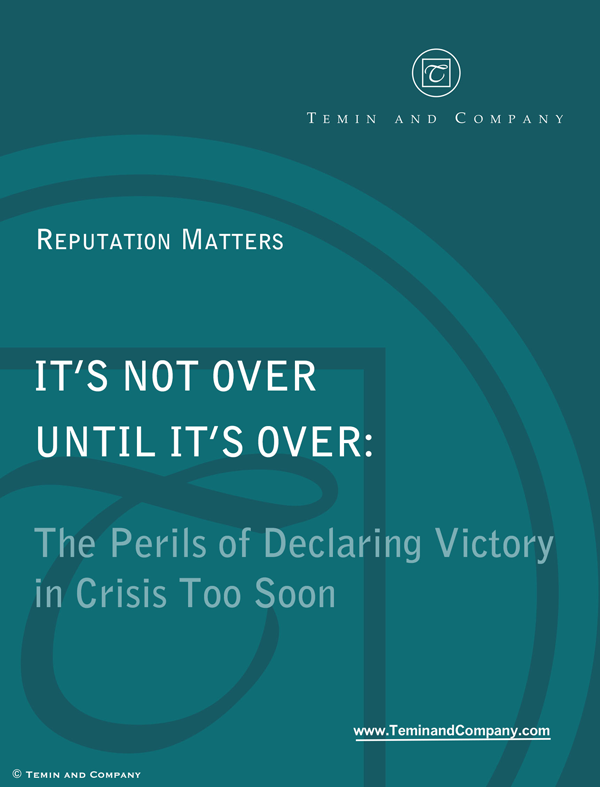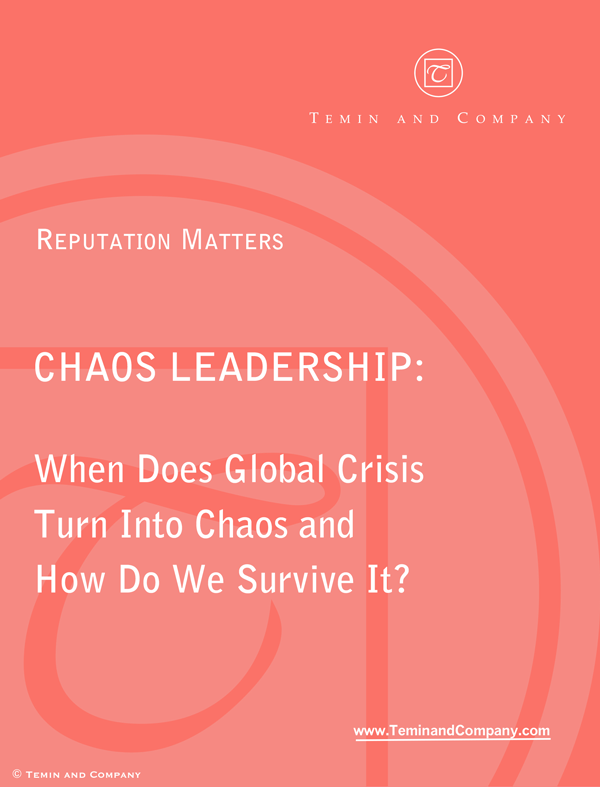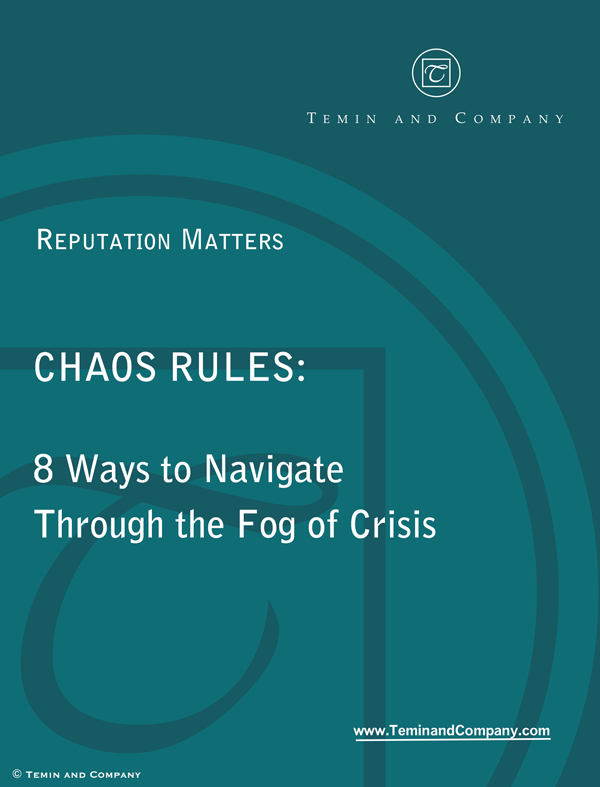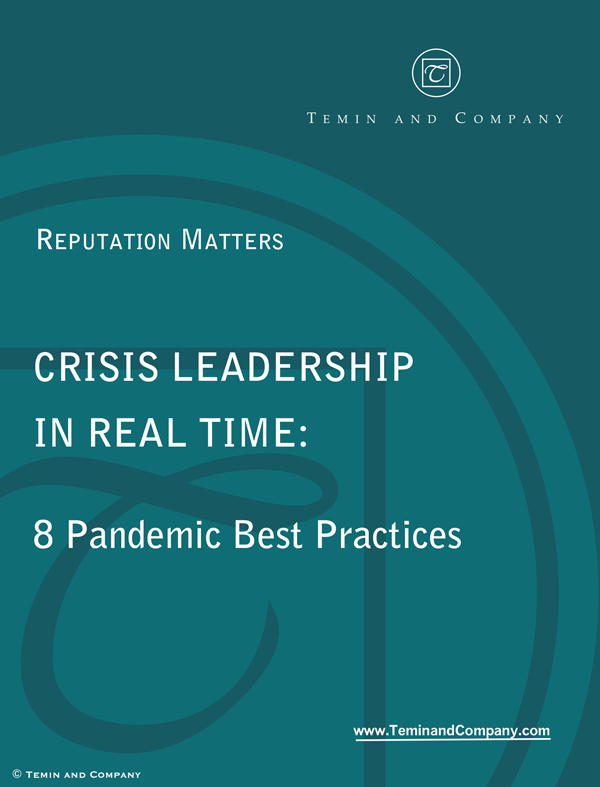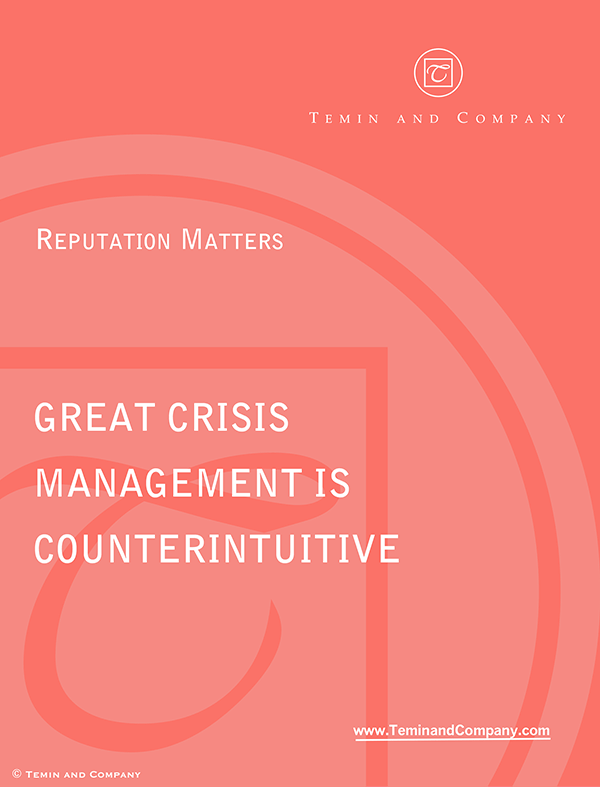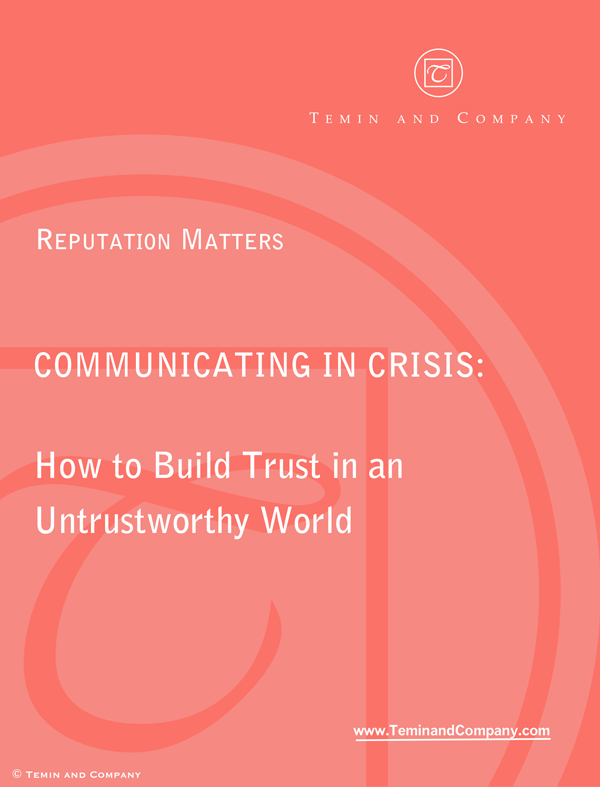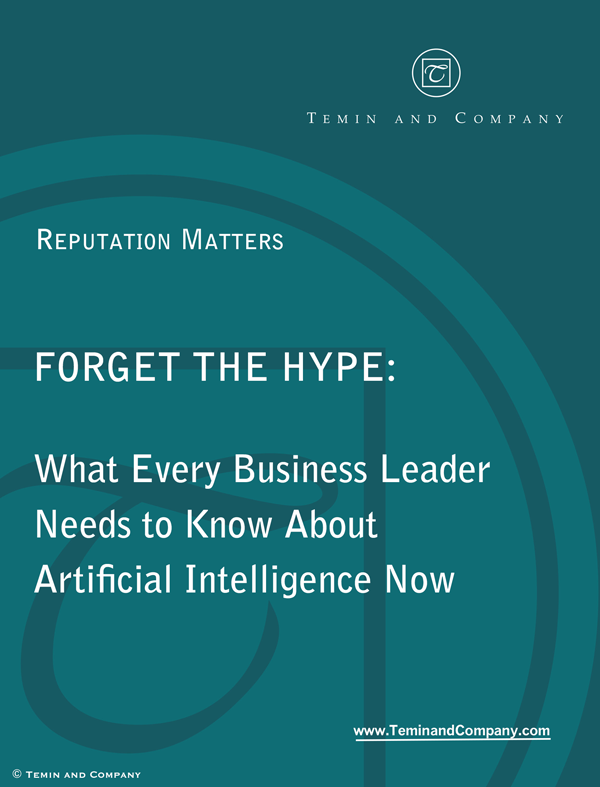Thought Leadership–Forbes “Reputation Matters”
White Papers»
"Reputation Matters" White Papers seek to offer deeper insight on a wide range of topics we help clients address.
Don’t Kill Off Your Website — Use It As The Hub For Your Social Media Presence
Leadership, “Reputation Matters” Forbes, January 9, 2014
The questions plaguing many corporate leaders these days about social media include: How can we take best advantage of this continually-changing platform for business, sales, and reputation enhancement? How do we choose which platforms to engage on? Where does our website fit in among all the emerging social media options? What about mobile? Must we do it all? And, is the effort it takes worth the investment, risk, and loss of control?
In fact, loss of control may be the most worrisome. There aren’t many places left where organizations can have total control over what is said about them, especially on the internet. But corporate websites can provide a still center of control, continuity and clarity of message. A website – compellingly done – can capture a brand, and encapsulate its positioning for all to see. A stake in the reputational ground, the best websites showcase their organizations’ aspirations and best selves as well as their brand. […read more]
Target’s Worst PR Nightmare: 7 Lessons From Target’s Well-Meant But Flawed Crisis Response
Leadership, “Reputation Matters” Forbes, December 30, 2013
Target is living up to its name in a way I am sure they never meant to do.
They have become the newest target case of how not to respond in a crisis. Although they have done many things right in their response to the second-largest retailer data breach on record, they have made some classic mistakes that have not only compromised their reputation, but the trust of their customers, employees, and the public.
In fact, by needing to retract on Friday earlier assurances to customers that their PIN numbers had not been stolen, Target effectively has morphed in the eyes of the public from a victim of crime to a co-conspirator. Not a good move brand-wise, trust-wise, reputation-wise, or business-wise. […read more]
Don’t Waste Money – Make Your Social Media Advertising Smarter, More Original, More Effective
Leadership, “Reputation Matters” Forbes, December 3, 2013
“Advertising is the price companies pay for being un-original,” designer Yves Behar has said.
But on social media, originality in advertising actually has found a new canvas, a new playground to explore. And the profession itself is being redesigned in real time.
Just as television was a disruptive force for print advertising, so social media is shaking up the entire ad industry – providing us with some best and worse examples of how to leverage the medium. […read more]
Don’t Think You’re Anonymous – Unless You’re Really Anonymous: #4 Of ’10 More Don’ts Of Corporate Social Media’
Leadership, “Reputation Matters” Forbes, November 26, 2013
Social media and the Internet are rapidly changing our expectations of both privacy and anonymity. This has profound implications for corporations, governments, and individuals alike.
What is more important, privacy (the ability to keep private information or conversation out of the hands of anyone but those for whom it was intended) or transparency (the right of the public to know the facts and motivations behind actions that affect them)? As a society, which do we value more – truth-telling (which can easily turn into lies and hate talk) or named accountability (which can stop revelations from taking place because of possible repercussions to the teller)?
These days we seem to be ambivalent – or to want it all: privacy when it suits us; transparency, when it feels right; anonymity when we can choose it; but accountability when others are posting anonymously about us, or those things we care about.
Yet we all suspect that there is almost no such thing as privacy anymore, or real anonymity on the Internet. What does this mean for corporations and other organizations? […read more]
Don’t Waste Your Time(line) – Maximizing Your Own Viral Potential For Thought Leadership: #3 Of ’10 More Don’ts Of Corporate Social Media’
Leadership, “Reputation Matters” Forbes, November 22, 2013
Thought leadership – the purest form of content – is a valuable currency on social media. Done innovatively, strategically, and well, it can build brand loyalty for organizations and individuals, and help to attract new clients. Done poorly or carelessly, it can do the exact opposite, and turn off these same customers.
How does any thought leadership gain traction today? Social media’s increasing influence is now changing the entire game, compelling profound changes in content and sharing – affecting how, when, where, and why certain posts turn viral. […read more]
Don’t Confuse ‘Thought Leadership’ With ‘Branded Content’ or ‘Native Advertising’ — #2 Of ’10 More Don’ts Of Corporate Social Media’
Leadership, “Reputation Matters” Forbes, November 21, 2013
Thought leadership, branded content, content marketing, and native advertising are all stops along the continuum of how ideas are expressed, and products are marketed, over the Internet.
But it is getting awfully hard for the public — and even some marketers — to tell the difference. […read more]
Don’t Ignore Your Best Co-Branding Opportunity — Your Employees: #1 Of ’10 More Don’ts Of Corporate Social Media’
Leadership, “Reputation Matters” Forbes, November 20, 2013
We all know employees can be both brand ambassadors and brand detractors. But what we haven’t wrapped our heads around is that they are also our most important co-branding opportunity. This is #1 in our series of “10 More Don’ts of Corporate Social Media,” introduced yesterday.
Corporate co-branding is a marketing staple: Companies co-brand with one another (Apple + Nike; Betty Crocker + Hershey’s; Dell + Intel); for-profits co-brand with non-profits (Nestle + The Girl Scouts; Pampers + UNICEF; American Express, Apple, Converse, etc. + The Global Fund – RED); and all of the above co-brand with movies, music, and sports (Aston Martin + James Bond; PINK + NFL; Apple + U2).
But in this ever-evolving world of social media – where almost everyone is thinking about how to “brand” himself or herself personally over social media – organizations can leverage the trend as their biggest co-branding opportunity of all. In other words, since there is no stopping the personal branding efforts of employees on social media, if you can’t beat them, you might as well join them. […read more]
Introducing ’10 More Don’ts Of Corporate Social Media’
Leadership, “Reputation Matters” Forbes, November 19, 2013
Every company, corporation, and organization is struggling to get its corporate social media right.
Boards are putting it on their agendas, as a reputational risk and opportunity. CEOs are puzzling over how to lead and evaluate their companies’ efforts, as well as debating what their own social media profile should be. Executive Committees are reviewing metrics and messaging, and still wondering which are meaningful. Human Resource Directors are competing for Chief Digital Officers from a small pool, without always knowing who will be good for their organizations – or what “good” really looks like. And Chief Marketing Officers are trying to be cutting edge and to add value, while juggling competing demands from all stakeholders – consumers, followers, shareholders, management, and an ever-fickle and sometimes malicious public.
And everyone is trying to figure out what the right “content” is, anyway. […read more]
When Brinksmanship Fails
Leadership, “Reputation Matters” Forbes, October 16, 2013
“Edgework,” an old boyfriend used to call it. He meant taking risks right up to the edge of disaster, but staying just on the safe side of the edge.
In some situations, edgework is actually a lot of fun – the adrenaline flows, the body and mind are pumped, all senses are engaged, and you can then be a hero and pull the situation out of the fire at the very last minute. Innovative. Young. Sexy.
But, you know what…after a certain point, it isn’t fun anymore. It just is tiresome. And then it gets dangerous. As with any addiction, in order to get the same thrill, you have to take more and more chances, and get closer and closer to the edge. Until one day, you can go too far, and you can fall over – and die.
Sound familiar? So, this is where we are as a nation – at the death of brinksmanship. […read more]
How NOT To Handle A Crisis: XO Communications’ Monumental Fail
Leadership, “Reputation Matters” Forbes, September 7, 2013
We’re a small business. They tell us that we are the backbone of the American economy. What do we need to compete and win at this challenging moment in time? (And they are all challenging of course.) Wonderful, smart people? Check. A valuable, viable business proposition and a record of success? Check. A profound care for our clients and an indefatigable work ethic? Check. A great website, superb intellectual capital, a highly responsive, real-time communications strategy? Check, check, check.
And a reliable, customer-friendly Internet Service Provider to host our email and point folks to our website? NO CHECK!
In fact, our ISP — one that specializes in small businesses — has had three systemic outages in 2 months, leaving us — and a huge percentage of small businesses in America — high and dry.
XO Communications is breaking every crisis management rule in the book. […read more]
White Papers»
"Reputation Matters" White Papers seek to offer deeper insight on a wide range of topics we help clients address.




